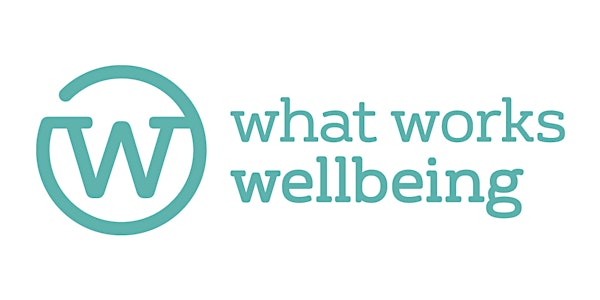
People, Place and Power - The role of local systems in community wellbeing: The 2nd What Works for Wellbeing Community Wellbeing Public Hearing
Date and time
Location
Sheffield Town Hall
Pinstone Street Sheffield S1 2HH United KingdomDescription
A growing number of local authorities are recognising that they have a role to play in rebalancing the relationship between the public, their communities and statutory services.
This second What Works for Wellbeing in Communities Public Hearing brings together leading local authorities with other stakeholders to share evidence and experience to consider current practice and what needs to be done to strengthen current activity.
The hearing is the second of two public hearings organised as part of the What Works Centre for Wellbeing Community Wellbeing Evidence Programme.
What are the aims of the public hearing?The first public hearing carried out as part of the Community Wellbeing Evidence Programme focused on the relationship between inequality, neighbourhoods and communities of interest. The hearing explored some of the difficulties in translating the evidence of the impact of improving community wellbeing into systematic and long-term support for these activities.
This event will build on the first, taking discussion up to the local authority ‘layer’ to consider what can be done to support and foster community wellbeing across local systems.
The hearing will provide an opportunity for researchers, local authorities and other stakeholders to come together and share knowledge and experience.
Key questions to be answered are:
1. What are the factors that improve community wellbeing - particularly for people who experience inequality?
2. What actions do leaders at the top of local systems need to take?
3. What helps to embed these actions?
The discussions on the day will be captured in a briefing for local system leaders.
Who is the public hearing for?The public hearing will bring together local authorities and their partners from the voluntary and health sectors who are active in this field; national agencies who have been promoting and supporting this work; and members of the What Works Centre for Wellbeing Community Wellbeing evidence programme.
Presentations
The day will include presentations from academics and systems leaders about their work to promote community wellbeing. The purpose of presentations is to share examples of what can be done to promote community wellbeing in order to stimulate critical discussion.
Two academics have been confirmed to present findings from systematic reviews conducted as part of the What Works Wellbeing Community Wellbeing Evidence Programme:
-
Prof. Anne-Marie Bagnall, Leeds Beckett University – ‘Interventions to boost social relations through improvements in community infrastructure (places and spaces)’
-
Mr Andy Pennington, University of Liverpool – ‘The Effect of Joint-decision making interventions on community wellbeing’
We will also be hearing from:
-
Martin Farran, Director of Adult Social Care, City of York Council
-
Helen Bown, Head of Policy and Research, National Development Team for Inclusion
-
Neil Berry, Associate, Lankelly Chase Foundation
Panel members
We will also be inviting people to sit on an expert panel. The role of panel members is to offer critical insight into promoting community wellbeing. Panel members will answer questions from the audience throughout the day and during the plenary session.
Confirmed panel members are:
-
Rob Webster, Chief Executive, South West Yorkshire NHS Foundation Trust
-
Tony Armstrong, Chief Executive, Locality
-
Roz Davies, Director for Social Inclusion, The Good Things Foundation
-
Dr Carolyn Kus, Executive Director for Strategic Commissioning and Director of Adult Social Care Services, Manchester City Council